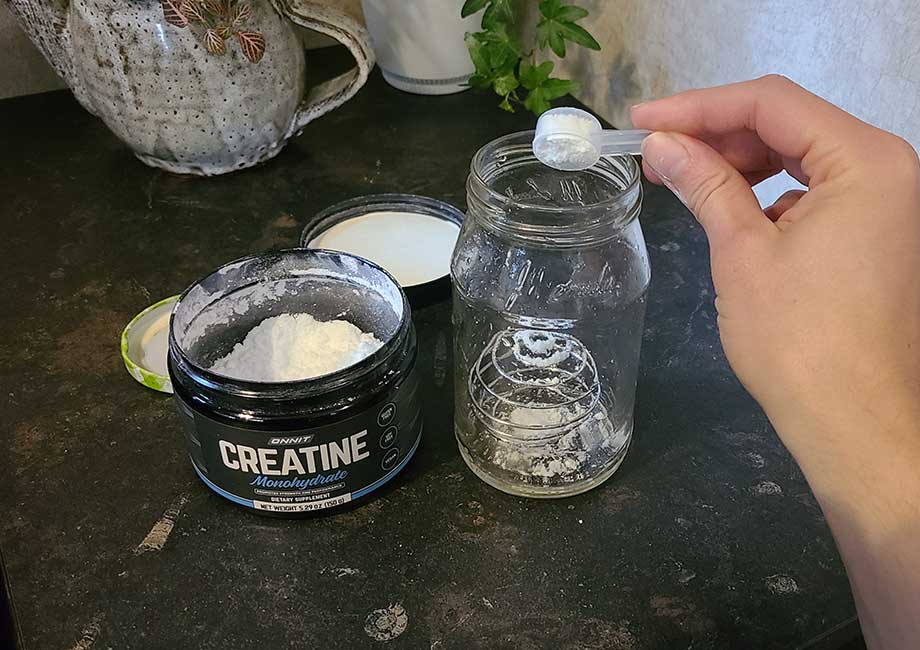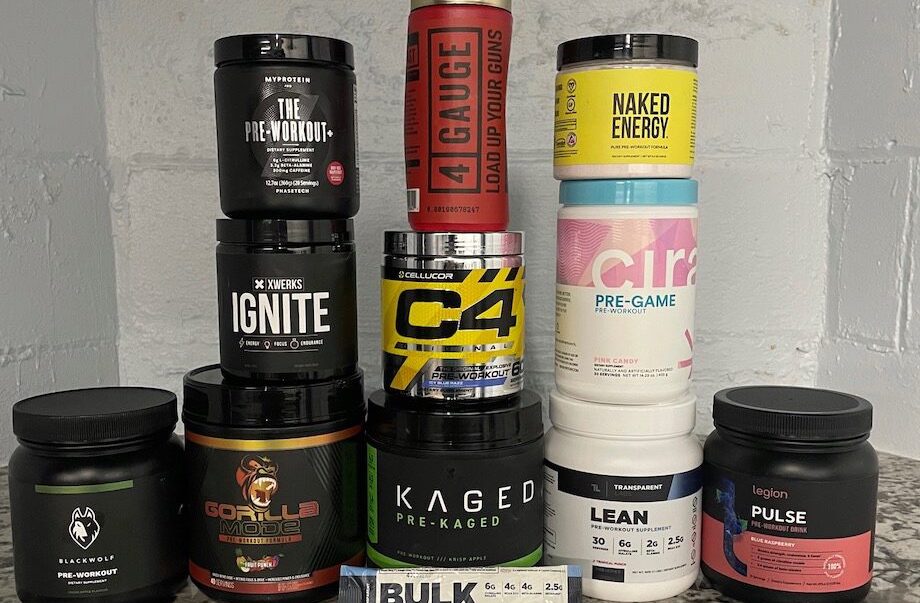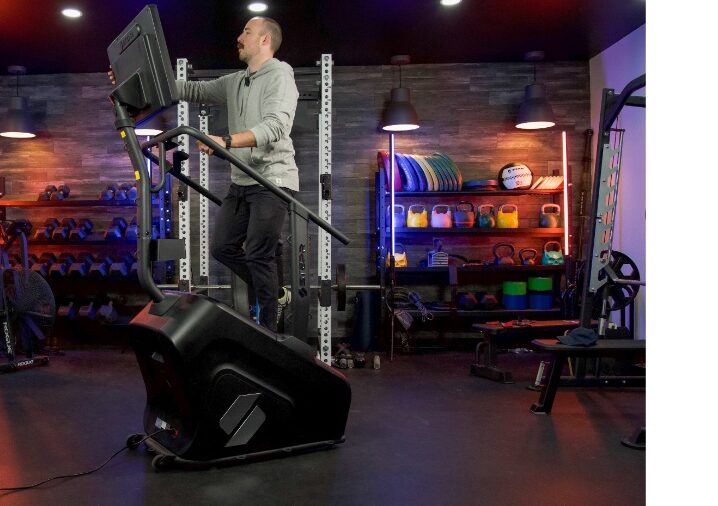Whey protein and creatine are among the most popular supplements in sports nutrition. However, are protein and creatine the same thing? Both contain amino acids, the building blocks of muscle, and both play a role in athletic performance, muscle growth, changes in body composition, and muscle recovery.
Despite these similarities, whey protein supplementation and creatine supplementation are still two very distinct products and practices in the fitness world. So, what sets them apart? What can protein do for the body that creatine cannot and vice versa? Can you take one without taking the other? An expert in sports nutrition breaks it all down below.
RELATED: Best Creatine
Medical disclaimer: This article is intended for educational and informational purposes only. It is not intended as a substitute for medical advice. For health advice, contact a licensed healthcare provider.
What Is Creatine?
Creatine is an organic compound made by combining three amino acids: methionine, glycine, and arginine. One of the most important functions of creatine is its contribution to the production of ATP, or adenosine triphosphate, the body’s energy source that is produced in the cell’s mitochondria.
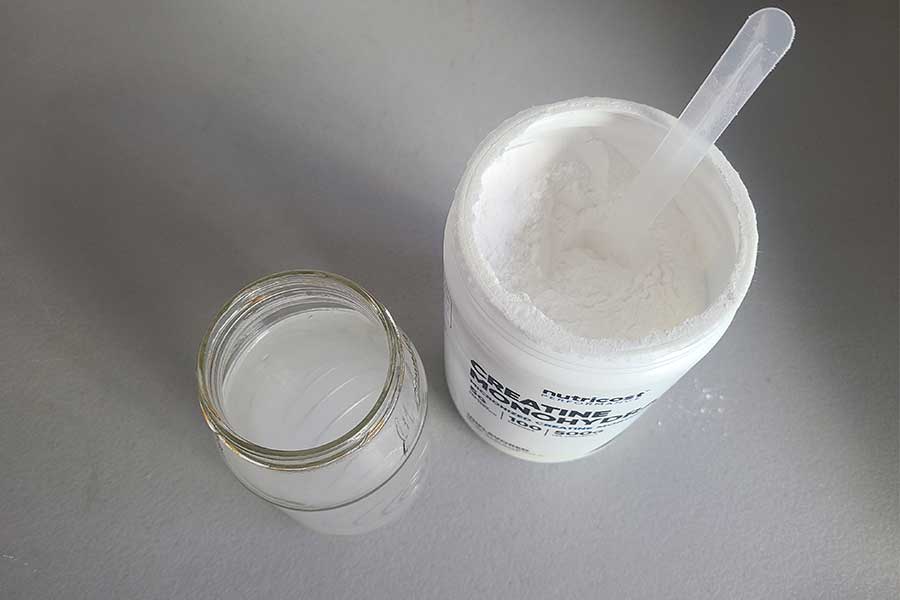
RELATED: What Is Creatine?
By removing a phosphate molecule, muscle cells convert adenosine triphosphate into diphosphate, or ADP. Physical performance is adversely affected by fatigue, which is caused by the lack of ATP, considering ADP cannot be used for energy after it loses its phosphate group.
Now, this is where creatine can help. When there is enough creatine in the muscle cells, it can be converted to phosphocreatine, which is creatine with a phosphate group added. You see where this is going?
This means that creatine can now “give” its phosphate group to the ADP molecules to make ATP again, which gives the skeletal muscle enough energy for muscle contractions which means the ability to exercise longer1. In addition to this function, creatine also plays beneficial roles in changing body composition, muscle recovery, and muscle strength.
RELATED: Is Creatine a Steroid?
Creatine Benefits
Creatine supplements come with their own unique set of short-term and long-term benefits to help support fitness goals. The benefits of creatine are based on both weight and exercise performance.
Promotes the Growth of Lean Muscle Mass
This trait of creatine is one of the most well-established benefits in all of the science conducted using creatine supplements. When combined with consistent resistance exercise, taking creatine supplements has been shown in plenty of studies to be effective at boosting muscle gains2 compared to resistance exercise alone.
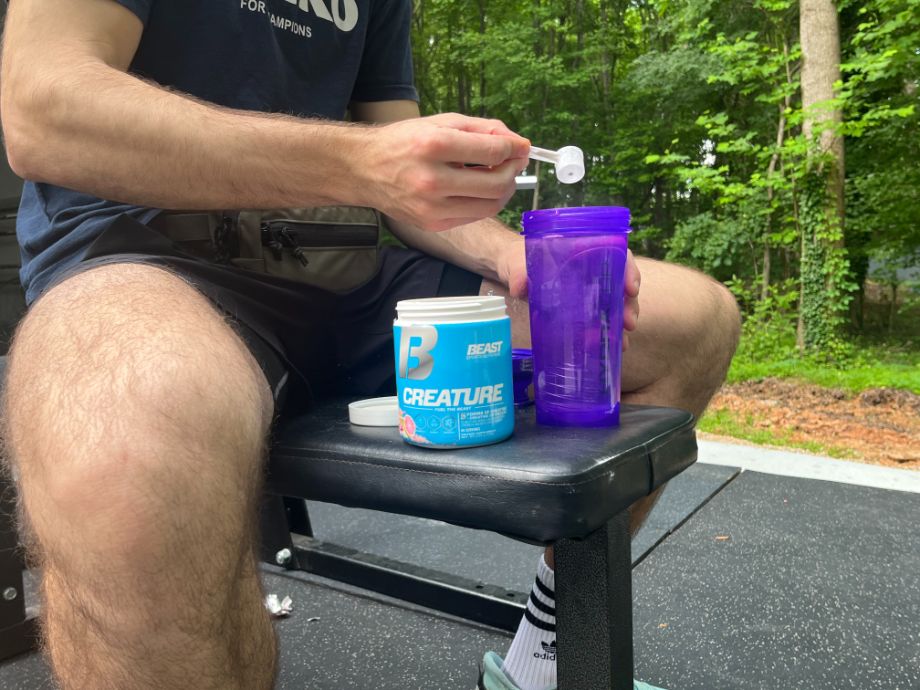
RELATED: Does Creatine Make You Gain Weight?
Boosts Recovery from High-Intensity Workouts
We already mentioned one of the effects of creatine is its ability to help energy production, and this function extends to muscle recovery by providing more energy for the muscle cells. Studies have shown1 that creatine supplements can also attenuate exercise-induced inflammation which can reduce muscular damage, which in turn means less muscle soreness and better recovery.
Assists in Increasing Muscle Strength
One study found that supplementing with creatine consistently can increase strength3 by 5% to 15%. The most impressive results of gains in muscular strength were seen in a study done at Penn State4 on 14 active men. These men took 25 grams of creatine monohydrate daily and, as a result, were able to do 30% more reps.
RELATED: Does Creatine Make You Stronger?
Support a Healthy Body Weight
Studies have shown that those who took creatine supplements while engaging in resistance training had a lower body fat percentage than those who did not take creatine. So, even though creatine can cause some initial weight gain from water retention, it also appears to help one achieve a more favorable body composition5 and assist in weight loss.
How to Use Creatine
The most effective dose for creatine supplements, according to the dosages used in sports nutrition studies, is 3 to 5 grams, with 5 grams likely being the most optimal6. Luckily, most of the best creatine supplements contain 5 grams per serving for this reason. Creatine should be taken daily, even on rest days, to maximize muscle creatine concentrations.
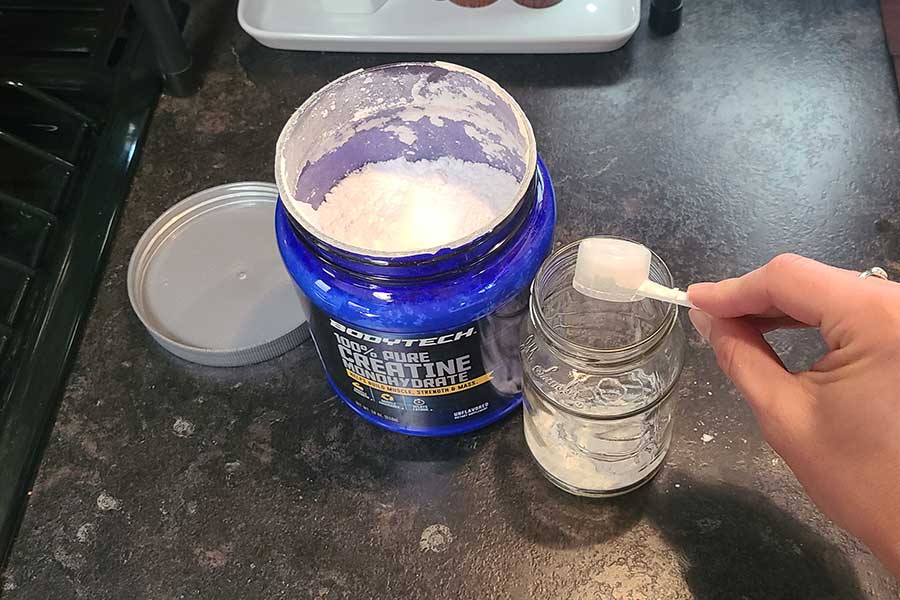
RELATED: How To Use Creatine
People sometimes take 20 grams of creatine for 5 to 7 days before switching to a maintenance dose of 5 grams of creatine. This practice is called a creatine loading phase and participants insist you can boost the effects of creatine by doing so. However, science doesn’t totally support this claim, as a loading phase only appears to definitively improve short-term athletic performance5.
What Is Protein?
Protein is an organic compound known as a macronutrient, so named because you need it in bigger amounts than micronutrients like B vitamins, vitamin C, and vitamin K in order to survive. There are three macronutrients: protein, carbohydrates, and fat.
RELATED: Different Types of Protein
Proteins are made up of chains of amino acids connected by what are called peptide bonds, which is why amino acids are called the “building blocks of protein.” You don’t have to be a bodybuilder for protein to be a focus of your daily diet because dietary protein does more than help build lean muscle mass.
Proteins also make up our hormones and enzymes, compose antibodies to keep our immune systems strong, and maintain the integrity of the skin, hair, and nails. This is why people who don’t eat enough protein can experience side effects such as hair loss, frequent illnesses, and severe fatigue.
RELATED: Protein Deficiency
Protein can be found in both plant and animal foods. However, animal foods are the best sources of essential amino acids, which are amino acids the body can’t make on its own and are needed for body functions to work optimally and to maintain muscle mass.

Protein Benefits
Protein is a vital part of the human diet and thus has a host of health benefits as well as performance and fitness-related benefits. Thus, we will be focusing on the most relevant features of this macronutrient.
RELATED: Benefits of Protein
Promotes Satiety and Aids Weight Loss
Studies show that protein, when compared to the other two macronutrients, can keep you feeling fuller for longer. The chemical structure of protein is very complex, making it time-consuming for the body’s stomach to untangle the coils of amino acids. This slows how quickly the stomach empties into the lower digestive system, which keeps you feeling fuller for longer7.
RELATED: High-Protein Foods List for Weight Loss
In one study, overweight women who increased their protein intake but made no other changes to their diet ate nearly 450 fewer calories per day8 than those who did not increase their protein intake.
Furthermore, protein requires more energy to digest than carbohydrates or fats, meaning just eating more protein can modestly increase your resting metabolic rate9. Studies done on this effect have seen an increase from 80 to up to 250 more calories10 burned at rest just by increasing protein intake.
The combination of eating less throughout the day and a higher metabolism can play a critical role in effective weight loss, as long as you are consuming a calorie-restricted diet overall.

Maintains Muscle Mass and Promotes Muscle Growth
It’s well known that protein is the only macronutrient that can give the body the amino acids it needs to maintain muscle mass and trigger muscle gains11. Thus, if you do any form of weight lifting or high-intensity exercise, it’s imperative that you eat enough protein. If you do not, the damage done to your muscles from lifting weights can cause losses in muscle mass and strength.
Supports Athletic Performance and Muscle Recovery
For athletes or those trying to gain an appreciable amount of muscle mass, getting in essential amino acids, including the branched-chain amino acids (BCAAs) valine, leucine, and isoleucine, is critical.
In one study, compared to those who took a placebo, athletes who took BCAAs saw better athletic performance and less muscle soreness12 following resistance exercise. Animal protein like red meat, fish, dairy, and poultry is the most efficient way to get enough BCAAs from your diet. However, BCAAs are among the most popular workout supplements among bodybuilders.
RELATED: Do BCAAs Give You Energy?
How to Use Protein
In order to get the health benefits of protein, it’s as simple as meeting the daily requirements for the general population. In this case, the USDA recommends consuming 0.8 grams of protein for every kilogram of body weight. So if you weigh 150 pounds, you’ll need about 55 grams of protein per day.
RELATED: 25 High-Protein Dinner Options
However, this is simply the minimal amount needed to prevent a protein deficiency and should cover you if you’re not active. If you engage in regular exercise like resistance training, however, you will need a lot more.
To maintain muscle tissue and support muscle building, The American College of Sports Medicine recommends13 consuming 1.2 to 1.4 grams per kilogram of body weight. However, these needs could increase if you have a large amount of muscle tissue to maintain, are in a calorie deficit, or engage in a very high volume of intense exercise training.
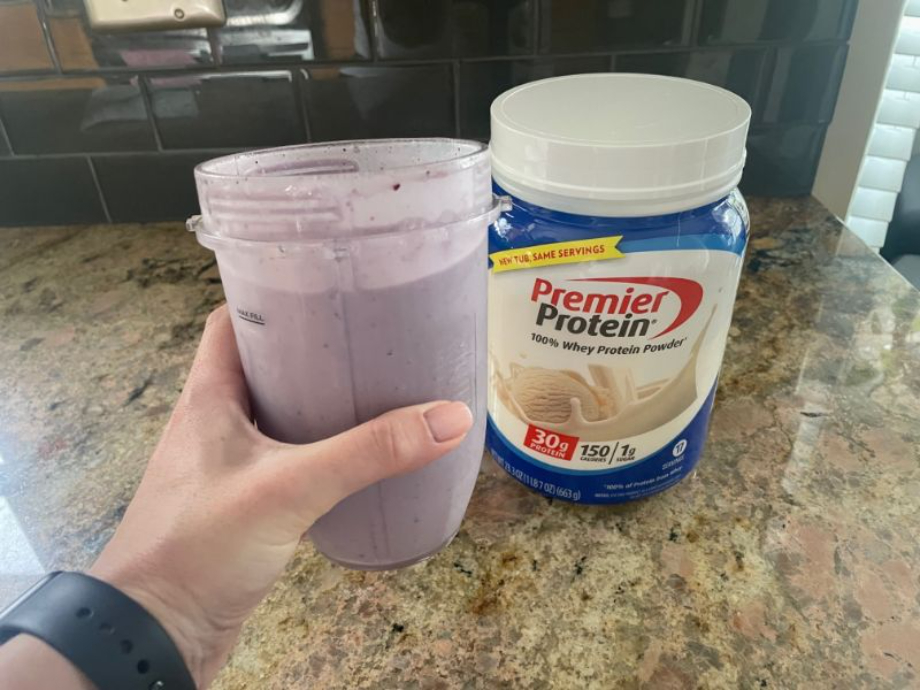
Finally, if you are vegan or vegetarian, your diet contains many protein sources that do not contain as much high-quality protein as those who eat an omnivorous diet. Thus vegan protein powder or precise diet planning with the assistance of a dietitian can help you use protein to get maximum health benefits and still support muscle gains.
So, Is Creatine a Protein?
The short answer is no. In spite of their similarities, both compounds have some key differences that should be taken into consideration.
Similarities
- Both are composed of amino acids and need certain amino acids to make their compound
- Both can be consumed through workout supplements for more efficient intake
- Both promote optimal brain function, muscle building, and athletic performance
- Both can help you manage your body weight and support weight loss
- Both are found in red meat and other animal foods
Differences
- Protein is a macronutrient while creatine is just an organic compound
- Protein contains calories while creatine does not
- The body can experience severe, potentially life-threatening side effects without a consistent consumption of protein; creatine is more optional than vital
- Creatine is a derivative of amino acids but is not made up of enough of them to qualify it as a protein
- Protein is found in both animal and plant foods, while creatine is found only in animal foods in significant quantities
- High-quality protein sources contain BCAAs, while creatine contains no BCAAs
Creatine and Protein Together
Whether taken pre-workout or post-workout, there’s no denying that creatine and protein work best when taken together. The benefits of creatine are very similar to protein in the fitness context, so taking them together can enhance their effectiveness.
The most popular supplements for creatine are powders, usually in the form of creatine monohydrate. As mentioned, taking 5 grams of creatine per day is adequate to receive benefits.
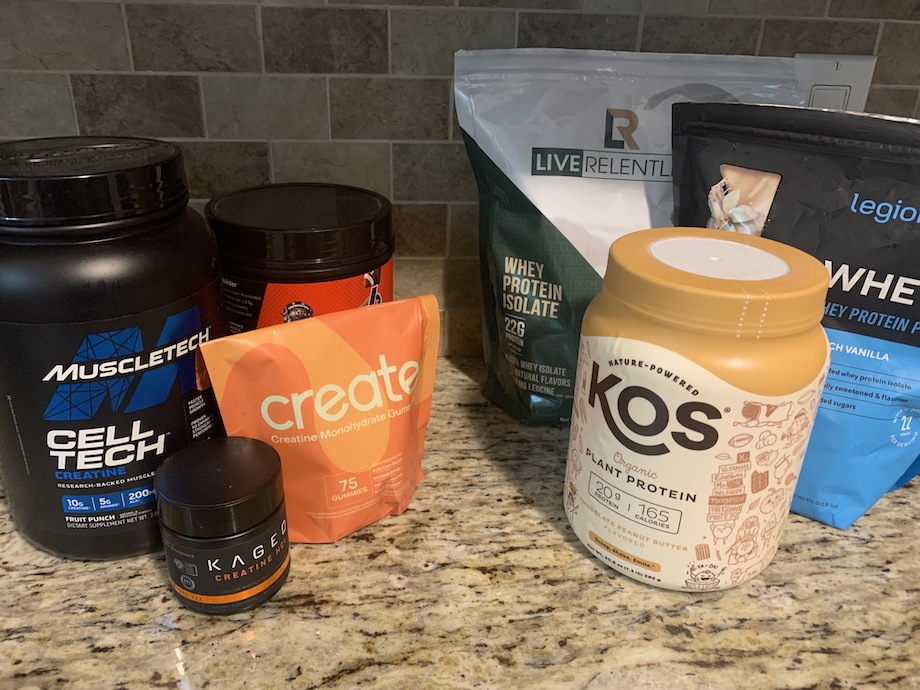
RELATED: Types of Creatine
That said, protein should mostly be obtained through your diet in the form of whole foods using a combination of foods like red meat, seafood, poultry, dairy, whole grains, and legumes. However, for active individuals, whey protein powder is among the most popular supplements to meet protein needs due to its affordability, high digestibility, and content of essential amino acids.
Thus, if you’re seeking optimal muscle protein synthesis, it’s practical and common to combine your whey protein supplementation with creatine powder in the form of a protein shake, especially as a post-workout. You can also break it up by having your creatine pre-workout and your protein shake after, given that creatine doesn’t slow digestion the way whey protein or casein protein can.
Is Creatine a Protein? Final Thoughts
Creatine should not be categorized as a protein, as creatine does not have the amino acid profile or overall chemical profile to be a substitute for dietary protein. We can live without creatine powder, but getting enough protein is absolutely critical for optimal wellness.
That said, there are certain populations, like those with kidney, pancreas, or liver disorders or who take certain medications, that should mind their intake of both compounds. Thus, you should talk to your healthcare provider if you fall under any of these categories.
In any case, both creatine and protein, despite key chemical and functional differences, also offer the same benefits. Both play a valuable role in muscle protein synthesis, athletic performance, and supporting recovery from intense exercise. Thus, it is beneficial to include both in your supplementation regimen.
At the end of the day, though, this is what it comes down to: Creatine is a sports nutrition supplement, whereas protein is nutrition. Therefore, the latter requires more focus than the former in terms of exercise and health-related benefits.
Is Creatine a Protein? FAQs
Is creatine an amino acid or protein?
Creatine is not a protein, but an amino acid derivative composed of the amino acids methionine, glycine, and arginine.
Which is better: creatine or protein?
In terms of overall health and goals in muscle building, protein should always be prioritized over creatine.
Can I take only creatine without protein?
You don’t have to take creatine supplements and protein together, but you should never eliminate protein from your diet with the expectation that creatine supplements will take its place.
These statements have not been evaluated by the Food and Drug Administration. This product is not intended to diagnose, treat, cure, or prevent any diseases.
References
- Wu SH, Chen KL, Hsu C, et al. Creatine Supplementation for Muscle Growth: A Scoping Review of Randomized Clinical Trials from 2012 to 2021. Nutrients. 2022;14(6):1255. Published 2022 Mar 16. doi:10.3390/nu14061255
- Rawson ES, Volek JS. Effects of creatine supplementation and resistance training on muscle strength and weightlifting performance. J Strength Cond Res. 2003;17(4):822-831. doi:10.1519/1533-4287(2003)017<0822:eocsar>2.0.co;2
- Kreider RB. Effects of creatine supplementation on performance and training adaptations. Mol Cell Biochem. 2003;244(1-2):89-94.
- Volek JS, Kraemer WJ, Bush JA, et al. Creatine supplementation enhances muscular performance during high-intensity resistance exercise. J Am Diet Assoc. 1997;97(7):765-770. doi:10.1016/S0002-8223(97)00189-2
- Forbes SC, Candow DG, Krentz JR, Roberts MD, Young KC. Changes in Fat Mass Following Creatine Supplementation and Resistance Training in Adults ≥50 Years of Age: A Meta-Analysis. J Funct Morphol Kinesiol. 2019;4(3):62. Published 2019 Aug 23. doi:10.3390/jfmk4030062
- Naderi A, de Oliveira EP, Ziegenfuss TN, Willems MT. Timing, Optimal Dose and Intake Duration of Dietary Supplements with Evidence-Based Use in Sports Nutrition. J Exerc Nutrition Biochem. 2016;20(4):1-12. doi:10.20463/jenb.2016.0031
- Halton TL, Hu FB. The effects of high protein diets on thermogenesis, satiety and weight loss: a critical review. J Am Coll Nutr. 2004;23(5):373-385. doi:10.1080/07315724.2004.10719381
- Weigle DS, Breen PA, Matthys CC, et al. A high-protein diet induces sustained reductions in appetite, ad libitum caloric intake, and body weight despite compensatory changes in diurnal plasma leptin and ghrelin concentrations. Am J Clin Nutr. 2005;82(1):41-48. doi:10.1093/ajcn.82.1.41
- Johnston CS, Day CS, Swan PD. Postprandial thermogenesis is increased 100% on a high-protein, low-fat diet versus a high-carbohydrate, low-fat diet in healthy, young women. J Am Coll Nutr. 2002;21(1):55-61. doi:10.1080/07315724.2002.10719194
- Bray GA, Redman LM, de Jonge L, et al. Effect of protein overfeeding on energy expenditure measured in a metabolic chamber. Am J Clin Nutr. 2015;101(3):496-505. doi:10.3945/ajcn.114.091769
- Pasiakos SM, McLellan TM, Lieberman HR. The effects of protein supplements on muscle mass, strength, and aerobic and anaerobic power in healthy adults: a systematic review. Sports Med. 2015;45(1):111-131. doi:10.1007/s40279-014-0242-2
- Waldron M, Whelan K, Jeffries O, Burt D, Howe L, Patterson SD. The effects of acute branched-chain amino acid supplementation on recovery from a single bout of hypertrophy exercise in resistance-trained athletes. Appl Physiol Nutr Metab. 2017;42(6):630-636. doi:10.1139/apnm-2016-0569
- Thomas DT, Erdman KA, Burke LM. American College of Sports Medicine Joint Position Statement. Nutrition and Athletic Performance [published correction appears in Med Sci Sports Exerc. 2017 Jan;49(1):222]. Med Sci Sports Exerc. 2016;48(3):543-568. doi:10.1249/MSS.0000000000000852


